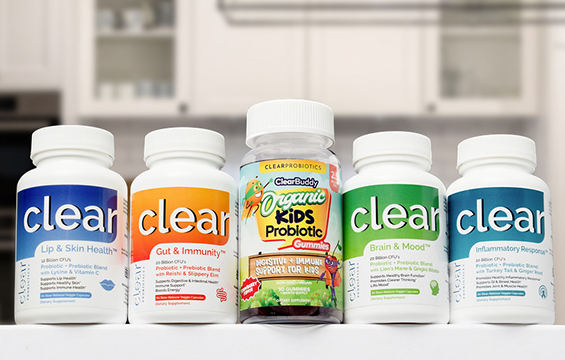Table of Contents
ToggleGas and bloating commonly plague many individuals, often due to an imbalance in the gut microbiome.
Probiotics introduce beneficial bacteria, addressing these symptoms, enhancing digestion, and even boosting mental health.
However, they can initially intensify gas and bloating, but this typically diminishes with consistent use. Some individuals might also react to specific ingredients in probiotics.
Thus, it’s vital to choose the right probiotic strain, start with small doses, and seek advice from healthcare professionals if adverse effects continue.
Used correctly, probiotics effectively optimize gut health.
Key Takeaways:
- Gas and bloating are common symptoms caused by an imbalance in the gut microbiome.
- Probiotics can help restore balance to the gut and alleviate symptoms of gas, bloating, and constipation.
- Probiotics have various health benefits, including improved digestion and reduced acid reflux.
- Side effects of probiotics may include temporary gas and bloating, especially when first starting to take them.
- Some people may have allergies or sensitivities to certain ingredients in probiotics, such as dairy.

Understanding Probiotics and Gut Health
The gut microbiome, which is the collection of microorganisms in the digestive tract, plays a crucial role in our overall health.
When the balance of bacteria in the gut is disrupted, it can lead to various digestive issues, including gas, bloating, and constipation.
This is where probiotics come into play.
Probiotics have been found to have various health benefits, including improving digestion, reducing acid reflux, and even improving mental health.
By taking probiotics, you can introduce beneficial bacteria to the gut, helping to restore balance and alleviate symptoms such as gas and bloating.
Probiotics can also improve nutrient absorption, strengthen the immune system, and promote regular bowel movements.
Furthermore, some individuals may have allergies or sensitivities to certain ingredients in probiotics, such as dairy.
If you experience any severe or prolonged side effects, it is recommended to consult a healthcare professional for guidance.

Probiotics for Digestive Health
Probiotics can help alleviate symptoms of gas and bloating and promote regular bowel movements.
Certain strains of probiotics are effective in managing conditions such as irritable bowel syndrome (IBS) and inflammatory bowel disease (IBD).
When choosing probiotics for digestive health, look for strains such as Lactobacillus and Bifidobacterium, as they are known to have positive effects on gut health.
| Probiotic Strain | Benefits for Digestive Health |
|---|---|
| Lactobacillus acidophilus | Helps maintain a healthy balance of gut bacteria and supports overall digestion. |
| Bifidobacterium lactis | Improves lactose digestion and may help alleviate symptoms of lactose intolerance. |
| Lactobacillus plantarum | Reduces inflammation in the gut and supports a healthy gut lining. |
Remember to start with a low dose of probiotics and gradually increase as tolerated.
This will allow your body to adjust and minimize any potential side effects.
It is always advisable to consult with a healthcare professional before starting any new supplement regimen, especially if you have any underlying health conditions or are taking medication.
Alleviating Flatulence with Probiotics
When combating flatulence, probiotics significantly reduce gas production and offer relief.
Many people experience gas and bloating due to an imbalance in their gut microbiome.
Beyond addressing flatulence, probiotics enhance digestion, diminish acid reflux, and positively influence mental health.
However, starting probiotics might lead to temporary gas and bloating as the body acclimates to new bacteria.
These effects usually wane after a few consistent weeks of use. It’s essential to choose probiotics that don’t contain allergens, like dairy, which can exacerbate flatulence in some people.
Starting with smaller doses and increasing as tolerated helps reduce discomfort. For severe or prolonged side effects, consult a healthcare professional. Used correctly, probiotics prove beneficial in promoting gut health and reducing gas and bloating symptoms.

Potential Side Effects of Probiotics
- Potential Side Effects of Probiotics:
- Probiotics increase gas production.
- Probiotics cause bloating.
- Reasons for Side Effects:
- New beneficial bacteria enter the gut.
- Probiotics break down complex carbohydrates, producing gas as a byproduct.
- Potential Allergies and Sensitivities:
- Some people react to specific ingredients in probiotics, like dairy.
Choosing the Right Probiotics for Flatulence
Not all probiotics are created equal when it comes to targeting flatulence. It’s crucial to choose the right probiotic strain that specifically addresses flatulence symptoms.
With so many options available in the market, knowing what to look for can be overwhelming.
Here are some factors to consider when selecting probiotics for flatulence relief:
- Strain Specificity: Different probiotic strains have different effects on gut health. Look for probiotics that contain strains like Bifidobacterium lactis or Lactobacillus acidophilus, which have been shown to help alleviate flatulence symptoms.
- Targeted Formulations: Some probiotics are specially formulated to target specific digestive issues, including flatulence. Look for probiotics that explicitly mention their effectiveness in reducing gas and bloating.
- Potency: The potency of probiotics is measured in colony-forming units (CFUs). Choose a probiotic with a higher CFU count to ensure that enough viable bacteria reach your gut and provide the desired benefits.
- Product Quality: It’s important to select probiotics from reputable brands that prioritize quality and safety. Look for third-party certifications, such as Good Manufacturing Practices (GMP), to ensure that the product meets high-quality standards.

Proper Usage and Dosing of Probiotics
When it comes to probiotics, it’s important to start with the right strain and gradually increase the dosage as tolerated.
This approach allows your body to adjust to the introduction of beneficial bacteria and minimizes the risk of experiencing side effects such as gas and bloating.
Choosing the right strain:
Manufacturers create different probiotic strains with unique benefits.
When searching for probiotic supplements, seek those that explicitly state their benefits for reducing flatulence.
The strains lactobacillus acidophilus, bifidobacterium lactis, and lactobacillus plantarum commonly relate to flatulence relief.
Starting with low doses:
I recommend starting with a low dosage of probiotics, especially if you’ve never taken them before.
This lets your body slowly adjust to the new bacteria. Start with about 1 billion CFUs (colony-forming units) per day and watch your body’s reaction.
If you don’t have any negative effects, you can slowly raise the dosage over time.
Gradually increase as tolerated:
Gradually increase the dosage as your body gets used to probiotics.
Listen to your body and notice any changes in symptoms. If you begin to feel more gas or bloating, you might be taking too high a dosage.
If this happens, decrease the dosage to a level where you don’t experience negative effects.
Allergies and Sensitivities to Probiotics
Be aware of any allergies or sensitivities to probiotics, as some ingredients can intensify flatulence symptoms.
Although most people tolerate probiotics well, certain ingredients in probiotic supplements, like dairy-based strains, can cause adverse reactions in some.
If you’re allergic or sensitive to dairy products, you must pick probiotics labeled as dairy-free or suitable for lactose-intolerant people.
Besides dairy allergies, some people might be sensitive to other ingredients in probiotic supplements, such as soy, gluten, or particular bacterial strains.
If you know of any sensitivities or allergies you have, read the product labels closely or speak to a healthcare professional to ensure you choose probiotics without potential allergens.
It’s also important to note that while probiotics often help many people with flatulence, some might notice a temporary uptick in gas and bloating when first using them.
| Allergy or Sensitivity | Suggested Approach |
|---|---|
| Dairy | Choose dairy-free probiotics or those suitable for lactose-intolerant individuals. |
| Soy | Look for soy-free probiotic options. |
| Gluten | Opt for gluten-free probiotics. |
| Specific bacterial strains | Consult with a healthcare professional to identify probiotics without the problematic strains. |
When to Seek Professional Advice
Probiotics promise to manage digestive issues, but we must understand their boundaries and the significance of expert input.
While many people benefit from these supplements, they don’t work for everyone in the same way. They can boost gut health, but they can also bring new challenges.
You might face initial side effects or unexpected reactions to certain ingredients. Therefore, choosing the appropriate probiotic strain and dosage for your needs is essential.
If you experience persistent or worsened symptoms after taking probiotics, you should consult a medical professional immediately.
In the end, while probiotics can serve as a helpful tool for wellness, you should use them with care and under a healthcare professional’s guidance.
FAQ
1. What is the connection between probiotics and flatulence?
Probiotics can affect gas production in the gut, which can contribute to flatulence.
2. Can probiotics help alleviate flatulence?
Yes, probiotics have been found to have benefits for reducing flatulence and improving overall gut health.
3. What are the potential side effects of probiotics?
Some potential side effects of probiotics include increased gas production and bloating.
4. How do I choose the right probiotics for flatulence relief?
Choosing the right probiotics for flatulence relief involves considering the specific strain of probiotics and their benefits for managing flatulence symptoms.
5. How should I properly use and dose probiotics for flatulence?
It is recommended to start with low doses of probiotics and gradually increase as tolerated when addressing flatulence.
6. Can allergies or sensitivities to probiotics exacerbate flatulence symptoms?
Yes, some people may have allergies or sensitivities to certain ingredients in probiotics, such as dairy, which can worsen flatulence symptoms.
7. When should I seek professional advice regarding probiotics for flatulence?
If you experience severe or prolonged side effects from probiotics, it is recommended to consult a healthcare professional.











